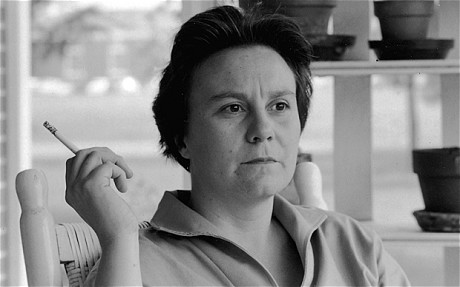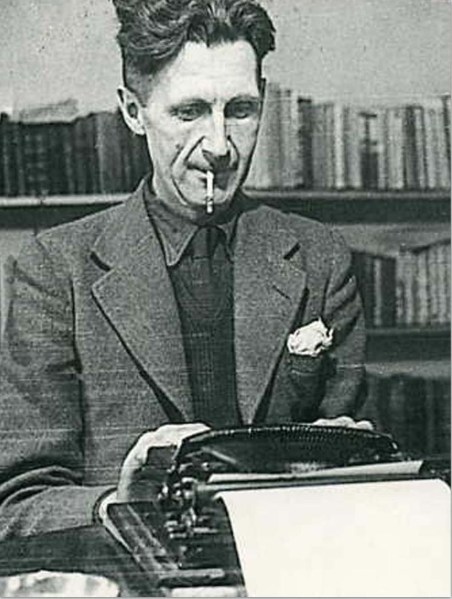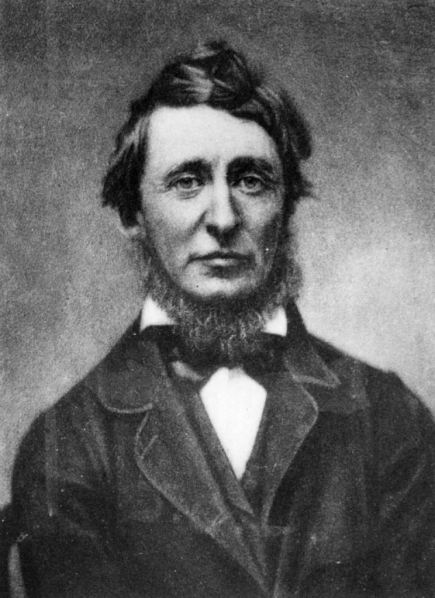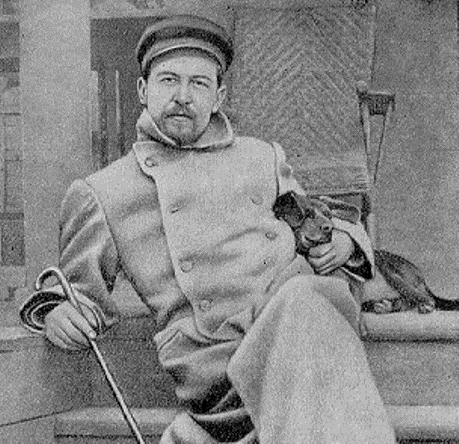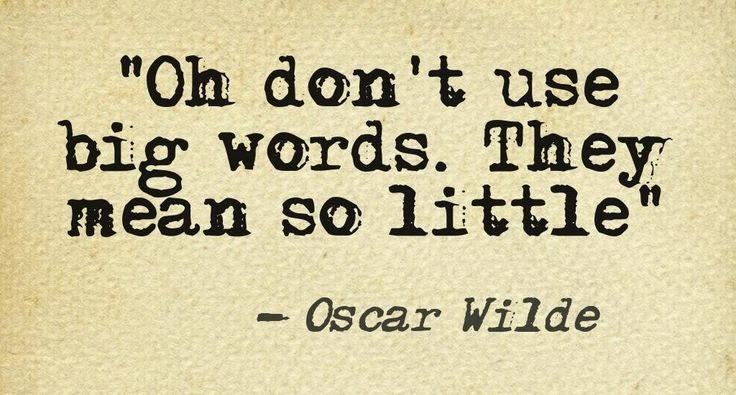You know that — on average —
only 2 out of 10 people read an article beyond the headline, don’t you?
If you don’t write irresistible headlines, even fewer will read your content.
Showing posts with label Writing Tools. Show all posts
Showing posts with label Writing Tools. Show all posts
How to write content your readers will remember
You’ve made so much effort.
You write, and write, and write. People are reading your content, but your message doesn’t stick. Your readers are forgetting it, and fast.Don’t worry.
The following nine simple tactics will make your message unforgettable:
- Use sound bites. These are easy-to-remember, easy-to-quote nuggets of wisdom, just like proverbs. And haven’t generations of people remembered proverbs?
- Avoid routine common sense. You won’t win reader loyalty with your breathtaking grasp of the obvious.
The Checklist of Character
 What we got here is a infograph of suggested check points for your MC and the Protagonist. I read through these and thought on the surface they looked like a good idea. Most of them are. What I balk at myself is the full list - the shear volume of them.
What we got here is a infograph of suggested check points for your MC and the Protagonist. I read through these and thought on the surface they looked like a good idea. Most of them are. What I balk at myself is the full list - the shear volume of them. I haven't used this checklist against any of my own novels -- I'm sure they all fall short at some point. However - it is a comprehensive list of points, which will improve the character area of a novel. I tend to write characters who are Not extraordinary in some way, as the first point suggests. the idea of 'regular people' being pitched against extraordinary events is more appealing and normal people are all that normal.
Development Methodologies, Business and Production
Much like construction and manufacturing work-flows, waterfall methodology is a sequential design process. This means that as each of the eight stages (conception, initiation, analysis, design, construction, testing, implementation, and maintenance) are completed, the developers move on to the next step.
Agile came about as a “solution” to the disadvantages of the waterfall methodology. Instead of a sequential design process, the Agile methodology follows an incremental approach. Developers start off with a simplistic project design, and then begin to work on small modules. The work on these modules is done in weekly or monthly sprints, and at the end of each sprint, project priorities are evaluated and tests are run.
Agile came about as a “solution” to the disadvantages of the waterfall methodology. Instead of a sequential design process, the Agile methodology follows an incremental approach. Developers start off with a simplistic project design, and then begin to work on small modules. The work on these modules is done in weekly or monthly sprints, and at the end of each sprint, project priorities are evaluated and tests are run.
- Agile methodologies (e.g. Scrum, XP, Kanban, Crystal etc) are often more difficult to understand than linear, sequential ones – at least initially.
- In waterfall Solution designers often aren’t able to foresee problems that will arise out of the implementation of their designs.
Tips from Authors for Authors
1
“I would advise anyone who aspires to a writing career that before developing his talent he would be wise to develop a thick hide.” — Harper Lee
2
“There are three rules for writing a novel. Unfortunately, no one knows what they are.” ― W. Somerset Maugham
3
“Writing a book is a horrible, exhausting struggle, like a long bout with some painful illness. One would never undertake such a thing if one were not driven on by some demon whom one can neither resist nor understand.” — George Orwell
4
“No tears in the writer, no tears in the reader. No surprise in the writer, no surprise in the reader.” ― Robert Frost
5
“You must stay drunk on writing so reality cannot destroy you.” ― Ray Bradbury
6
“Write while the heat is in you. … The writer who postpones the recording of his thoughts uses an iron which has cooled to burn a hole with.” — Henry David Thoreau
7
“The first draft of anything is shit.” ― Ernest Hemingway
8
“You can’t wait for inspiration. You have to go after it with a club.” ― Jack London
9
“In the planning stage of a book, don’t plan the ending. It has to be earned by all that will go before it.” ― Rose Tremain
10
“The first sentence can’t be written until the final sentence is written.” — Joyce Carol Oates
11
“Always be a poet, even in prose.” ― Charles Baudelaire
12
“Don’t go into great detail describing places and things… You don’t want descriptions that bring the action, the flow of the story, to a standstill.” ― Elmore Leonard
13
“Leave a decent space of time between writing something and editing it.” ― Zadie Smith
14
“My own experience is that once a story has been written, one has to cross out the beginning and the end. It is there that we authors do most of our lying.” ― Anton Chekhov
15
“Perfection is achieved, not when there is nothing more to add, but when there is nothing left to take away.” ― Antoine de Saint-Exupery
Do You Know Your Readership? Do You?
I'm moving back into a day job I had -- part time anyway. This means that I will be picking back up the pseudonyms that I had with the company. These personas havn't put out a new title in over six months. With my Fiction Writers Group I was going to put together a few posts on using Twitter for best effect. I noticed several of the members are on Twitter now fumbling about. In the past I didn't do any marketing for the pseudonyms at all, but the names are cold long enough for proof of concept now. I'm fairly good with Twitter and Social Media I can normally get 3k page views on any given day. In fact I did that on Friday -- again as a proof of concept.
Where you start with Twitter is the hashtags, but not necessarily in the "trending" ones. What you are looking for is a set of Hashtags that are frequented by people who would be your readers. Once found you get involved, post interesting news, facts, jokes, and help people with problems they might have. You make yourself a resource. But first, you need to find those tags, which means Demographics.
Where you start with Twitter is the hashtags, but not necessarily in the "trending" ones. What you are looking for is a set of Hashtags that are frequented by people who would be your readers. Once found you get involved, post interesting news, facts, jokes, and help people with problems they might have. You make yourself a resource. But first, you need to find those tags, which means Demographics.
In The Beginning
Starting with a Start
Where to begin with your writing. Some suggest outlines, or mind maps or stream of consciousness, or carrying a note book around to jot down ideas for several weeks.
Genesis 1:1. In the beginning . . .
The phrase “In the beginning" is a translation of the Hebrew word bereshith. In the case of several of the books of the Bible, the first word is taken as the title of the whole (much as Papal bulls are named for the two Latin words with which they begin.) The Hebrew name of the first book is, there, Bereshith.
The first book was named “Genesis,” which means, literally, “coming into being.” It implies a concem with births and beginnings which is appropriate for a book that begins with the creation of heaven and earth
Now, let's not jump to the conclusion that I'm a good and kind Christian, but the Bible does offer some keen ideas about the creative aspect of us humans. So, let's start there -- In the Beginning...
The Stroop Effect
In psychology, the stroop effect is a demonstration of interference in the reaction time of a task. When the name of a color (e.g., "blue", "green", or "red") is printed in a color not denoted by the name (e.g., the word "red" printed in blue ink instead of red ink), naming the color of the word takes longer and is more prone to errors than when the color of the ink matches the name of the color. The effect is named after John Ridley Stroop, who first published the effect in English in 1935. The effect had previously been published in Germany in 1929. The original paper has been one of the most cited papers in the history of experimental psychology, leading to more than 701 replications. The effect has been used to create a psychological test (Stroop test) that is widely used in clinical practice and investigation.
The Ever Changing Zen of the Fiction Writer
Has Your Zen Changed without Your Permission? That happens with zen things. If you have discovered that your needs are changing and the style of your writing is also changing, such as – You started as a Pantser, and now you find you need Outlines and Research Notes -- Don't worry, you'll alter that perspective several times before you come to a "workable theory" of how you work best as a writer. That is, if you ever do. Writers and other Artists use the mind in ways that other efforts do not. But that doesn't mean that this needs to cause strife.
The McGurk effect
The McGurk effect is a perceptual phenomenon that demonstrates an interaction between hearing and vision in speech perception. The illusion occurs when the auditory component of one sound is paired with the visual component of another sound, leading to the perception of a third sound.
It was first described in 1976 in a paper by Harry McGurk and John MacDonald titled "Hearing Lips and Seeing Voices".
It was first described in 1976 in a paper by Harry McGurk and John MacDonald titled "Hearing Lips and Seeing Voices".
Word of the Day -- Optimism
op·ti·mism
ˈäptəˌmizəm/noun
synonyms: hopefulness, hope, confidence, buoyancy,cheer, cheerfulness, good cheer, sanguineness,positiveness, positive attitude "I wish I had your optimism"
Tools for Writers -- and a few for World Domination
These are a bunch of things that you didn't need until I listed them.
FreeMind A mind mapping program which I find very useful.
Scrivener This is the all-in-one planning, research, drafting, writing, and publishing tool you've probably heard a lot about.
CoSchedule CoSchedule is an editorial calendar, task manager, and social media planner for WordPress.
Evernote I store my brain in Evernote. This is an amazing notebook tool for research. Another is ...
Google Keep Fast, easy, light and backed up on your Google Cloud. Never loose any note again.
iA Writer Minimalist writing app for iPad. Using Dropbox, you can sync writing in iAWriter between your devices and Scrivener.
TweetDeck MarketingTweetDeck is the easiest way to keep track of your social accounts without needing to log in every time.
Buffer Buffer is a lifesaver. It posts automatically, using a queue-like list of your scheduled updates.
AWeber It's the #1 mailing list provider, and I use it for all of my newsletters.
MailChimp "Sexier" than AWeber, because there is a Chimp, easy-to-use, and free (up to a point), it's only #2 because of feature limitations.
MindMup is a mind mapping tool, like FreeMind, but different. It's super easy to use, but limited.
Feedly RSS reader to keep up with all of your blog reading.
Skype Skype is my phone -- no, seriously, it is what I use for most of my communications That and ...
FreeMind A mind mapping program which I find very useful.
Scrivener This is the all-in-one planning, research, drafting, writing, and publishing tool you've probably heard a lot about.
CoSchedule CoSchedule is an editorial calendar, task manager, and social media planner for WordPress.
Evernote I store my brain in Evernote. This is an amazing notebook tool for research. Another is ...
Google Keep Fast, easy, light and backed up on your Google Cloud. Never loose any note again.
iA Writer Minimalist writing app for iPad. Using Dropbox, you can sync writing in iAWriter between your devices and Scrivener.
TweetDeck MarketingTweetDeck is the easiest way to keep track of your social accounts without needing to log in every time.
Buffer Buffer is a lifesaver. It posts automatically, using a queue-like list of your scheduled updates.
AWeber It's the #1 mailing list provider, and I use it for all of my newsletters.
MailChimp "Sexier" than AWeber, because there is a Chimp, easy-to-use, and free (up to a point), it's only #2 because of feature limitations.
MindMup is a mind mapping tool, like FreeMind, but different. It's super easy to use, but limited.
Feedly RSS reader to keep up with all of your blog reading.
Skype Skype is my phone -- no, seriously, it is what I use for most of my communications That and ...
The Right Word, not The Most Interesting
Oscar Wilde is my hero. Ever since I learned his last words. This quote is so bloated with meaning I could have gone to hero-worship on it alone.
People only hear, what they understand.
That's a maxim that should be taped to the desk right beside the keyboard, and never covered. People do not ask what a word means. Even though they could right-click the mouse and ask Google to define the word for them, they don't. What they do, is ignore the whole sentence and make something up. This is true. Read "Predictably Irrational". The whole sentence -- just gone..Your pitch is useless from there on.
People only hear, what they understand.
That's a maxim that should be taped to the desk right beside the keyboard, and never covered. People do not ask what a word means. Even though they could right-click the mouse and ask Google to define the word for them, they don't. What they do, is ignore the whole sentence and make something up. This is true. Read "Predictably Irrational". The whole sentence -- just gone..Your pitch is useless from there on.
Why are sex scenes in most books unrealistic?
Who wants real sex? I mean, seriously. First time sex is always a little awkward. Someone's foot always winds up in someone's face. Hands flutter into each other. Takes a while to get a good rhythm going with each other. It is fun. God yes, but seriously. Write a first experience down and then read it out loud. If you aren't one of the participants, it is dull stuff. Like watching golf. It is not sexy. It is not a turn on. It is certainly not visual and more often than not it breaks the Willful Suspension of Disbelief -- that last being why I never go for realism.
Yes, yes, it is unrealistic and be as critical as you would like, but it is a turn on. If you are going to have a sex scene that doesn't turn the reader on, I would ask, WHY? Why bother. First off, they are difficult to write, even for seasoned erotica writers. You mess up on them, they turn into a lurid low-budget snafu -- just add one wrong moment, or bad line. It takes some practice to get them down and a great deal of editing.
Second, if the reader doesn't like sex scenes, she'll skim. If she does like them, she will feel cheated if he jumps out of bed to take a piss, doesn't flush and leaves the seat up, before running back to bed to try to get her warmed up again, but she's not really in the mood because she's thinking about the fouled toilet water... so, why bother?
Yes, yes, it is unrealistic and be as critical as you would like, but it is a turn on. If you are going to have a sex scene that doesn't turn the reader on, I would ask, WHY? Why bother. First off, they are difficult to write, even for seasoned erotica writers. You mess up on them, they turn into a lurid low-budget snafu -- just add one wrong moment, or bad line. It takes some practice to get them down and a great deal of editing.
Second, if the reader doesn't like sex scenes, she'll skim. If she does like them, she will feel cheated if he jumps out of bed to take a piss, doesn't flush and leaves the seat up, before running back to bed to try to get her warmed up again, but she's not really in the mood because she's thinking about the fouled toilet water... so, why bother?
Build Readership? or
Finish the novel First?
 This is just my opinion, but after a couple decades doing this, I would worry about finishing the novel first.
This is just my opinion, but after a couple decades doing this, I would worry about finishing the novel first.Marketing is a full time job, and you want to be a writer. So, Write.
Seriously. Get the novel done, beta read, edited, and then the cover completed.
Now, this is a fast easy way to get your novel going so you can get back to writing. Because that is what we do, we write novels, right?
1. Write three short stories that go with the novel. Each between 10k-15k words. Craft them with all the skills you have, and tie them directly to the novel you just finished.
2. As a cycle, putting out one short story every week, on Wednesday morning -- Go on to Amazon, e-publish one of those short stories. List them for $0.99 but use the Special pricing of FREE for the four days they will allow you. One per week, and in-between start mapping out and researching your next novel.
3. At the end of the run, publish your novel at $3.99 on amazon, no free option.
4. Once your novel is up, go to SmashWords, and run the same schedule.
5. Then, write another novel.
Never read or reply to your reviews.
...just saying.
The only thing I would add is a blog, but only if you are going to commit to posting something every day. That is where you can answer questions or comment if someone gives you an opinion on your novel. But if you aren't going to commit to a post every day, then don't do it. A dead blog is death to your marketing.
Look at the list of my activity over on the side of this blog. See those first two years? Three? Yeah... I had a huge problem getting a readership "Back". Most of my readers (the ones from the writing I've done under my own name) had come and gone, a long time ago. Since I was ghostwriting these series novels, I didn't really give this blog much thought. And I'm grateful that when I came back to it I didn't need to get a readership up in a hurry, because my readers are only just now beginning to trust me enough to trickle back in.
And thank you for the chance.
#amwriting #writerslife #write
Your reviews don't matter
Don't Read Them
Never read your own reviews. And, Never, Ever, EVER respond to them.
You can skim the review. Go down to the Comments area, where the author answers -- and then replies to his answer -- and then replies to his reply -- and then throws caution to the wind and replies to that reply... Finally a third party offers an opinion and the author spirals completely out of control -- now arguing with himself, and the newcomer at the same time. More voices enter into this rising storm -- and it is like a car wreck with a body on the road -- you're horrified but you can't look away.
Then some people try to offer comments to the Author of the Review Post, and it is like Greek Fire across the deck!
... and then … it just gets amazingly weird after that.
Bad Author! No Biscuit!
Now, a success story, of a woman who doesn't have good mechanics, but doesn't let that stop her, and she doesn't read or reply to her reviews.
This novel is 613 pages when she publishes it. Between the covers there are Run-On sentences, which travel half-a-page -- horrible punctuation, terrible grammar, absolutely stuffed with unrequired verbiage, l o n g d e s c r i p t i o n s of getting dressed in the morning, repeated use of tedious responses, frequent use of adverb-adjusted dialog tags.
However!
Perfect storytelling, brilliant awareness of reader, characterization so strong readers frequently forget the MCs are not real -- deep emotional connection, excellent use of dialog, impassioned sexual encounters, lively engaging secondary characters, believable interactions, thoroughly entertaining.
Good Reads 22,105 reviews on one title
... nice following eh?
4.50+ rating
Amazon (Indie Published on Kindle) 396 reviews 4.5 rating
Then she is picked up for Traditional Publishing by Forever Publishing
It's like Cinderella! Or Dorthy arriving in the Emerald City!
Her book is edited by inhouse editors, and republished at 562 pages (a little leaner, and healthier -- probably just liposuctioned the 50 extra pounds of adjectives from around the thighs) A new cover with sexy people is pressed to the flesh, and then it is sent off to the Ball!
Achieves Adoration from Editorial Reviews on reprinting -- just look at the Amazon page.
Author Name: Kristen Ashley
Title : Sweet Dreams (Colorado Mountain Book 2) I believe this is her 20th book.
http://www.goodreads.com/book/show/11227040-sweet-dreams
She Never responds, or even reads her reviews... which is good because she would probably stop writing -- there are some brutal people out there.
Never read or respond to reviews. They do not matter.
Outlines vs. MindMapping
I was asked yesterday if I outlined my stories, and no, I really don't. However I do use the mind-mapping tools extensively.
(Within Me the Other bleeds -- map using FreeMind format)
On my laptop I use Freemind, as well as Mindjet MindManager Pro. On my iPad I am currently using MindMeister, because it was the best one I have found so far.
When I say “best” however, this is a very subjective recommendation.There are some mind-mapping programs out there which are very well made, and easy to use, but I don't like them. Can't really tell you why, but it has something to do with noticing them... I want to focus on my projects and ideas, not the mind-mapping program.
(Within Me the Other bleeds -- map using FreeMind format)
On my laptop I use Freemind, as well as Mindjet MindManager Pro. On my iPad I am currently using MindMeister, because it was the best one I have found so far.
When I say “best” however, this is a very subjective recommendation.There are some mind-mapping programs out there which are very well made, and easy to use, but I don't like them. Can't really tell you why, but it has something to do with noticing them... I want to focus on my projects and ideas, not the mind-mapping program.
Subscribe to:
Posts (Atom)
Where the Wild Things Are...
Chess is a Wild game I've only been playing for a short time, but I've gained enough understanding to realize that the angles of ...

-
Led by the National Governor’s Association and Council of Chief State School Officers, the initiative to create national benchmarks in read...
-
“... [before] I’m accused of a complicated plot that I’m not mentally capable of thinking up.” — Richard Jeni Philosopher Peter Carrut...


